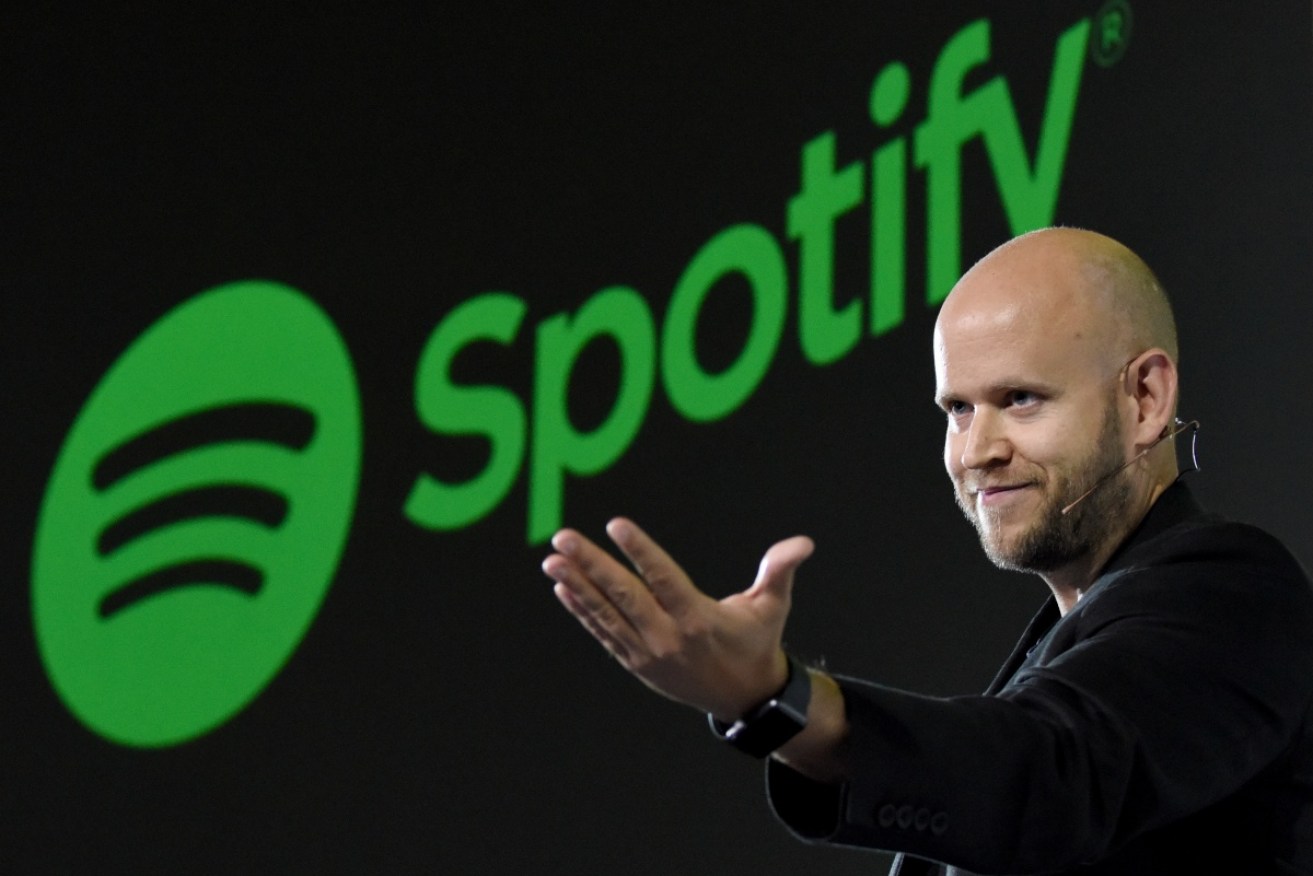Mystery music: Spotify denies creating ‘fake artists’ to cut costs


Spotify CEO Daniel Ek gestures during a press conference in Tokyo. Photo: Getty
Spotify has denied it is filling its service with ‘fake’ music after it was discovered many releases on the music streaming service cannot be traced back to actual artists.
Some of Spotify’s most popular curated playlists are populated by tracks, some of them with millions of plays, that can’t be found anywhere else online.
The issue was first raised in an article last year by Music Business Worldwide, but gained steam earlier this month after the same publication published anonymous sources confirming the practice.
Many have regarded this as a potential cost-cutting measure as, by filling curated playlists with their own music, Spotify could hypothetically avoid paying a high volume of royalties to A-list artists on every listen.
At least 51 artists on Spotify are untraceable outside of the streaming platform.
Each has only a couple of short songs and no internet presence, yet appear on official Spotify playlists such as ‘Yoga Music’, ‘Piano & Chill’ and ‘Music For Concentration’.

All the covers for the purportedly ‘fake’ artists look suspiciously like stock imagery.
The ‘fake’ music contains no vocals and is mostly ambient, simple and short. This makes it comparably easy to produce and release en masse compared to other genres and styles.
According to one listener, a track by mystery artist Bon Vie, Broken Promises, even appears to directly plagiarise a children’s movie soundtrack.
When asked if this tactic could be used by the company to save money, APRA AMCOS Director of Media Licensing David Sheils said it was plausible.
“I would only be speculating, but an example might be that a lower revenue share could be negotiated for those tracks.”
Mr Sheils, however, disputed whether the revelation is an issue.
“How is this any different to a television producer commissioning a composer to write a score? Or a known artist choosing to record anonymously for a reality competition show?” he said.
“We need to remember that most, if not all, of the examples we have seen relate to new-age, chill or yoga mixes – genres that lend themselves to music specifically composed to affect mood. It’s not like they’re seeding the Indie Mixtape or A1 Hip Hop playlists.”
Regardless, many of the ‘fake artists’ have racked up millions of listens thanks to their placement on official Spotify playlists. That’s more than 520 million streams between them.

Ambient artist Deep Watch sports millions of streams on their two songs, but has next to no online presence anywhere else.
When asked for an explanation, The New Daily was told: “Spotify isn’t providing any further comment”, beyond a four dot-point press release that denied any wrongdoing.
“We do not and have never created ‘fake’ artists and put them on Spotify playlists. Categorically untrue, full stop,” it said.
“We do not own rights, we’re not a label, all our music is licensed from rightsholders and we pay them – we don’t pay ourselves.”
It also did not address our questions regarding the removal of information from some of the artist pages, including the name of nonexistent publishing company ‘DW Productions’.
According to one anonymous source that spoke to MBW, the practice is nothing new for the company.
“This has been going on for a long time. We’ve been told that third-parties are involved, and at least some of the people behind the fake artists agree to insanely low margins, which obviously has a financial benefit to Spotify,” the source said.
The New Daily reached out to Spotify and ARIA for further comment, but none was provided by either company at the time of publication.








